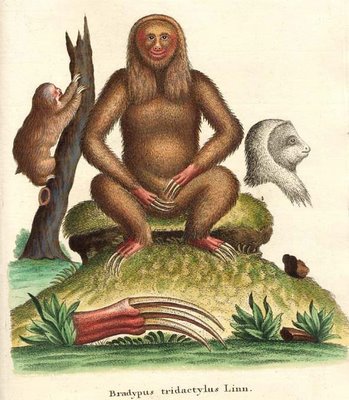
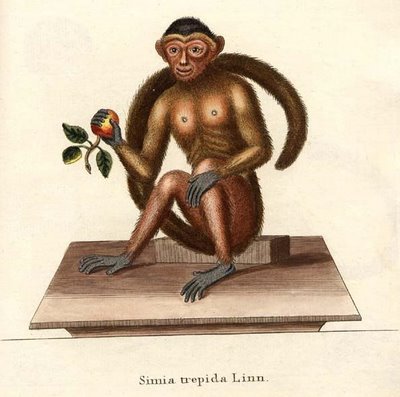
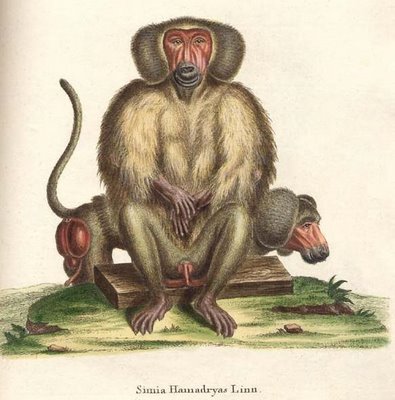
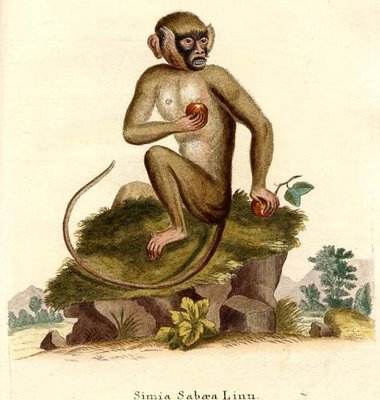
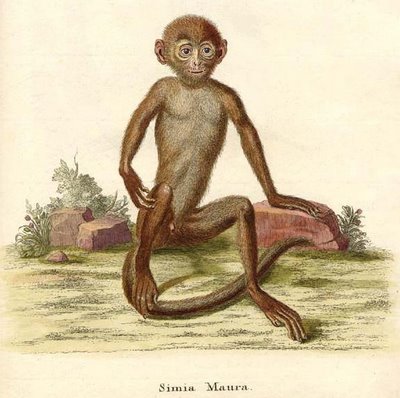
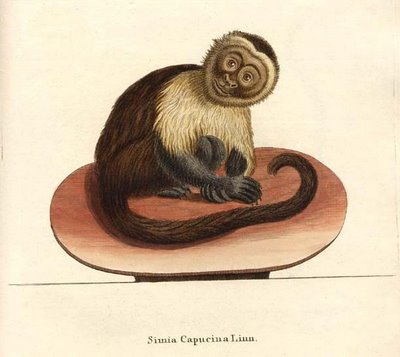
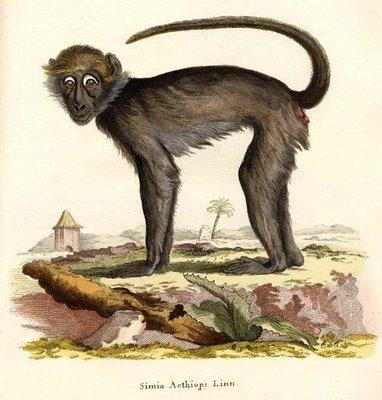
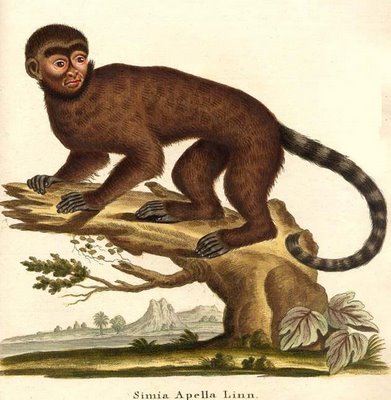
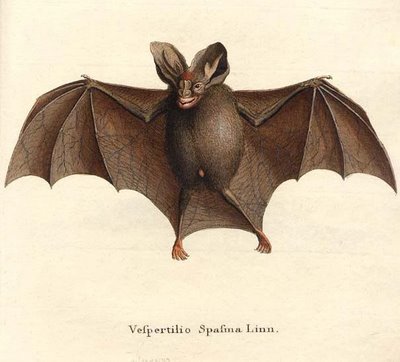
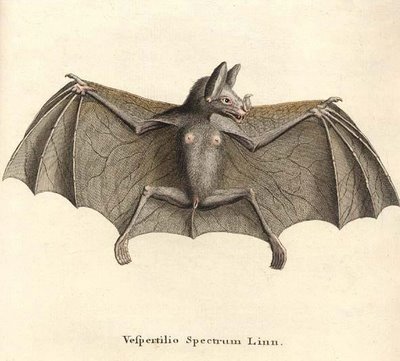
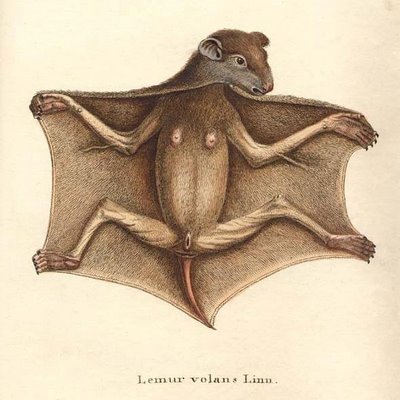


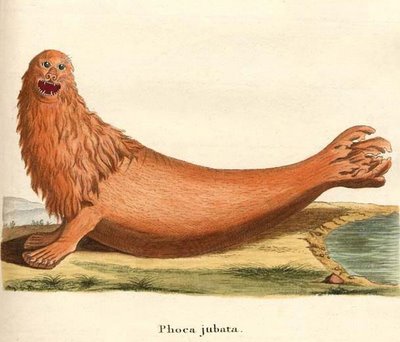

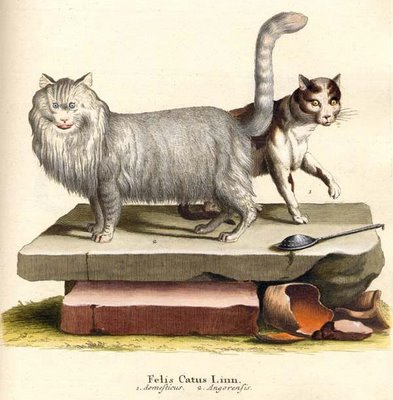
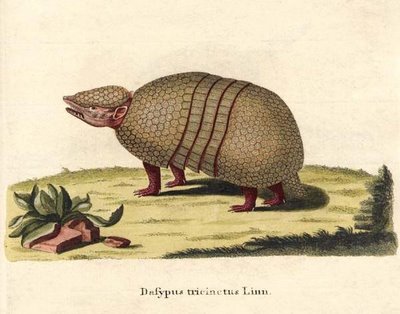
German naturalist Johann Christian Daniel von Schreber (1739-1810) trained as a physician and went and studied botany in Sweden under the great Carolus Linneaus. He would eventually edit one of Linneaus's publications and he also included the Linnean binomial species naming system for the first time for some of the animals depicted above.
Schreber became a Professor of Medicine and Director of the Botanical Gardens in the german city of Erlangen and issued a number of scientific publications. As best I can make out, they are as follows:
--'Novae Species Insectorvm' 1759 [online; see also]
--'Beschreibung der Gräser nebst ihren Abbildungen nach der Natur' ['Description of the grasses with illustrations drawn from nature'] 1766
--'Spicilegium florae lipsicae' 1771 (on fungi)
--'Die Saugthiere in Abbildungen nach der Natur mit Beschreibungen' ['Mammals Illustrated after Nature with Descriptions'] in at least 3 volumes in 1774
The above illustrations come from 'Die Saugthiere in Abbildungen' at Ecole Nationale Vétérinaire de Lyon (named as 'Histoire naturelle des quadrupèdes' - either misslabelled or this is the title of the french edition) -- there are about 200 illustrations available from the original 775 engravings published: [thumbnail pages] Volume I, Volume II, Volume III.
Georges-Louis Leclerc, Comte de Buffon was a contemporary of Schreber and issued his massive 'Histoire Naturelle' series over a couple of decades in the mid-18th century and it contains very similar engravings to those in the Schreber books. Both authors used an engraver called De Seve and I believe that he must have re-engraved plates he had made for the earlier Buffon work. I didn't see any that were identical but there is a very very close resemblance at times.
The absurd rendering of many of the animals comes about because the engravers/artists working on the project did not actually see the animals. They had to rely on descriptions and their imagination and, as was the fashion of the time, the animals were placed in contrived settings and often given human facial qualities, which only serves to heighten the sense of bizarre. And thankful we are too. {The above images have all been cleaned up a little in the background}.
No comments:
Post a Comment